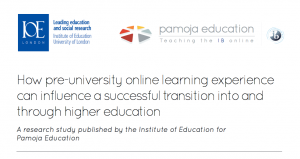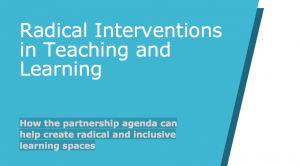Since we reported on the HE findings from our Digital Student work, several reports have been published that shed light on aspects of students’ digital experiences. This is a brief round-up and commentary (views expressed are my own).
The HEA’s UK Engagement Survey (UKES) aims to help institutions understand and improve students’ personal engagement with learning and teaching, and their collective involvement in developing the curriculum. In 2014 – its second pilot year – the survey has upped participation from nine institutions to 32, with 25,533 undergraduate students taking part. Clearly there is a real appetite for measures of engagement: we can expect to see items included in the new NSS question set as well. This ties in with the messages we heard in our own consultation process that students can (should?) play an active role in developing their digital environment and learning toolkit.
Further new research published by the HEA assesses The Management of the Undergraduate Student Experience in English higher education and in particular whether and how this is changing with the new funding environment. The study team at the Institute of Education looked in detail at six institutions with varying degrees of emphasis on research or on teaching, learning and the student experience. They report that:
- all the case study institutions are placing greater emphasis on the quality of teaching and learning;
- there is an increased focus on the employability of graduates;
- less research intensive universities are ‘centralising services, standardising procedures and strengthening management controls’ e.g. around recruitment, academic contracts;
- relations between students and institutions are changing everywhere, but the ‘students as customers’ narrative is particularly strong at the less research-intensive institutions.
The Institute for Education were also behind a study into How pre-university online learning experience can influence a successful transition into and through higher education. Students in this study were almost unanimous in the view that technology skills were important in preparing for university. Specific skills they expected to need included ‘finding academic resources online, coordinating group work online, building relationships via social networks, discussing questions with the tutor through web- based technology, and using multimedia resources for both the production of work and for revision’. One cohort of students had undertaken an online course prior to enrolling at university, and there was evidence this had increased their capacity to learn independently: ‘Personally, I learned a lot from taking an online course because it helped me prepare myself in terms of scheduling and allocating time.’; ‘it helped me to learn how to communicate more effectively through online mediums, including getting through group projects without the benefit of face-to-face meetings.’ The online teachers had also developed new skills to support students effectively in the online environment, which they were able to carry over into offline teaching.
The annual Universities UK Higher education in facts and figures publication has some interesting statistics about graduate jobs and employability. Twenty percent of GDP growth between 1982 and 2005 was brought about by enhanced graduate skills in the workforce, while areas of the UK economy which are currently growing – mainly professional and technical occupations – employ a high percentage of graduates. This argues for a continued focus on students’ digital capabilities.
Finally, thanks to Jisc’s partnership with the NUS, I was privileged to receive a copy of a new report in advance of its publication on NUS connect. Entitled ‘Radical Interventions in Teaching and Learning: How the partnership agenda can help create radical and inclusive learning spaces‘, this is one of the most acute and thoughtful position papers I have read on the consumerisation of the student experience, and the potential for a partnership approach to challenge this trend.
Vice President Higher Education at NUS, Megan Dunn, commented that: ‘at it’s essence, this is about giving students the time and space to develop their own learning spaces… but also looking at how teachers could contribute to wider student activity, where learning happens outside the classroom and often without it even being realised… It’s about letting students know that you are there and willing to help, without taking over the design and delivery of the learning itself.’ The NUS is taking this agenda forward in 2015 by supporting projects at specific universities and by working with student societies. Follow the NUS connect site for more.


